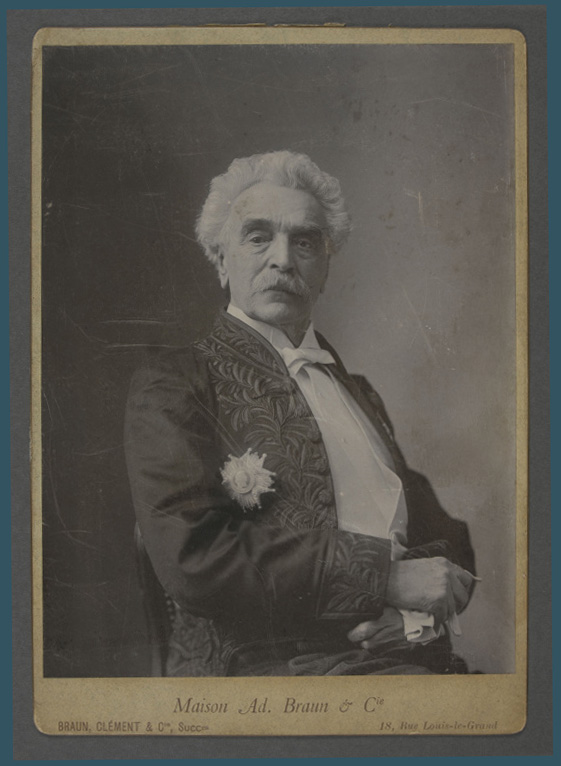The thing that interests me most
about history is that it is about people -- most often
about people who are very different than I am, who have had
very different experiences and have come to view the world in
ways that are quite unlike mine. By trying to understand how
they came to such a different values and perceptions, I learn
something about myself and at the same time learn to better
understand people around me.
So let's begin our
effort to understand why so many cultural figures in late 19th
century France resisted change in the arts by looking at one
of them, the artist, Jean-Léon Gérôme. By exploring his
passions and perceptions and the environment that nourished
them, we can get an understanding of the world of late 19th
century Parisians and, perhaps, of our own world as well.
In readding the biographical sketch of Gérôme,
your task is most definitely
not to try to memorize the
details of his life. (I solemnly swear that in this course you
never be tested on what year Gérôme's painting,
The Cock Fight,
was "skyed" or when he objected to one of Manet's paintings
being hung in an official collection.)
Instead, you need to get a sense of how Gérôme's professional
experience and his position within French culture may have
predisposed him to reject changes in French culture. As you
read, ask yourself questions such as
-- "Why did Gérôme's despise
paintings that we consider masterpieces today?"
-- "What notions of ideal
art shaped his own work?"
or
-- "How might his training as
an artist have made him resistant to new forms of painting?"
|

Gérôme in the uniform of Grand Officer of the Legion of Honor |
